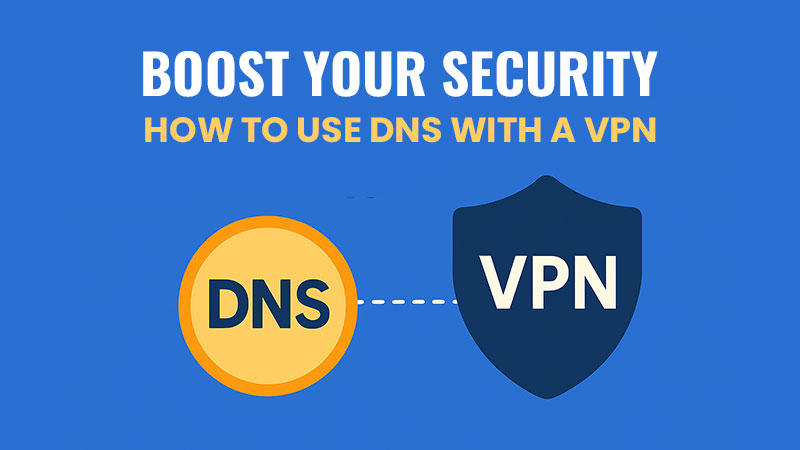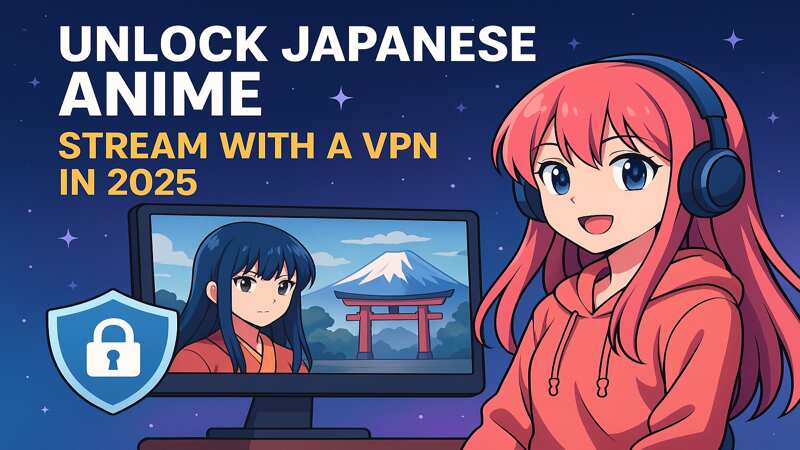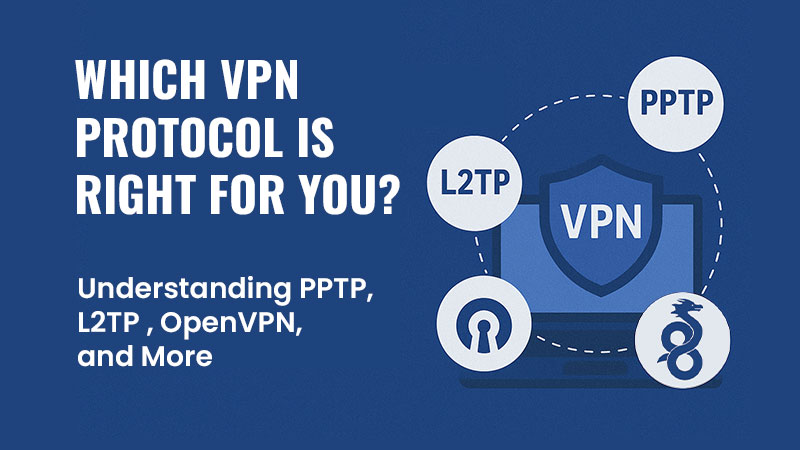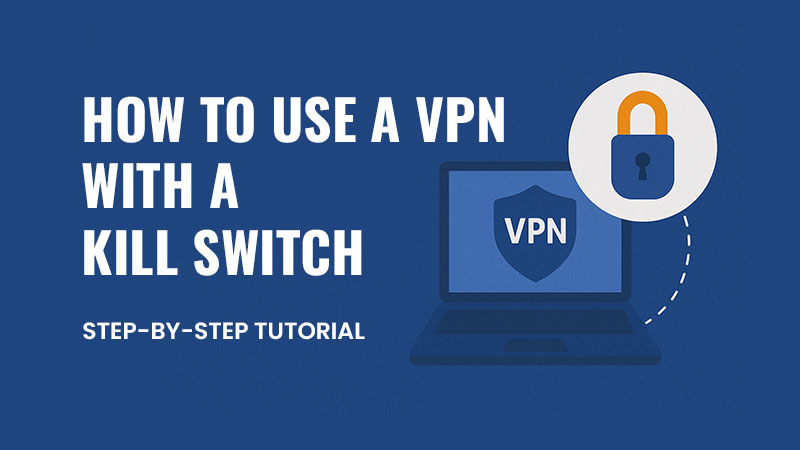Online security and privacy are more critical than ever. Every time you browse the internet, your data is potentially at risk from cybercriminals, intrusive advertisers, and even your own Internet Service Provider (ISP). Hackers can intercept your connection, corporations can track your browsing habits, and malicious actors can exploit vulnerabilities to access your sensitive information. With the increasing number of online threats, simply browsing with basic security settings is no longer enough. This is why leveraging advanced tools to protect your digital footprint is essential. Two powerful technologies that can significantly enhance your online safety are VPNs (Virtual Private Networks) and DNS (Domain Name System) configurations. But did you know that combining these tools can provide even stronger protection? In this guide, we’ll explain how to use DNS with a VPN to boost your security and maintain your privacy online.
VPN Basics: Why They're Essential for Online Privacy
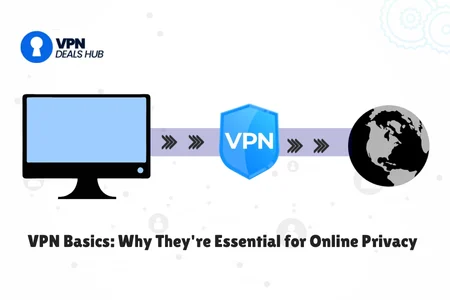
A VPN (Virtual Private Network) protects your online activity by encrypting your internet traffic and routing it through a secure server, effectively masking your IP address. Without a VPN, your data travels through your ISP’s servers, where it can be tracked, logged, or even intercepted by hackers. A VPN forms a secure tunnel between your device and its server, keeping your data private and protected from surveillance.
VPNs are especially valuable when using public Wi-Fi networks, which are often unsecured and vulnerable to attacks like man-in-the-middle (MITM) intrusions. Additionally, VPNs allow you to bypass geographic restrictions and censorship by enabling you to appear as though you’re browsing from a different location. This not only expands your access to global content but also protects your right to an open and free internet.
Another critical function of VPNs is safeguarding sensitive information, such as online banking details, login credentials, and private communications. Whether you’re a casual internet user, a remote worker, or a digital nomad, a VPN provides an essential layer of security to protect your identity and maintain your digital privacy.
Key Benefits of Using a VPN:
- Online Anonymity: Hides your IP address, making it difficult for websites, advertisers, and hackers to track you.
- Secure Data Transmission: Encrypts all data exchanged between your device and the internet, protecting it from interception.
- Bypass Geo-Restrictions: Access content and services that may be blocked or restricted in your country.
- Protection on Public Networks: Secures your connection when using public Wi-Fi hotspots, reducing the risk of cyber-attacks.
What is DNS and Why Does It Matter?
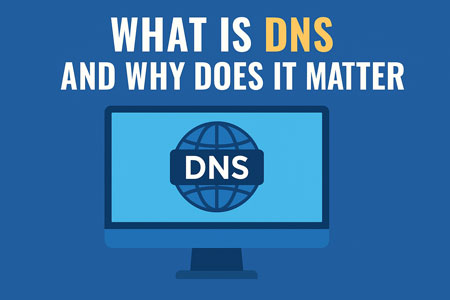
The Domain Name System (DNS) translates domain names (like example.com) into IP addresses that computers use to communicate. By default, your DNS requests are typically handled by your ISP, which can log your browsing activity and potentially expose your data to third parties.
DNS Vulnerabilities:
- DNS Leaks: When DNS requests bypass the VPN tunnel, exposing your browsing activity.
- Tracking: ISPs can monitor DNS queries.
- Phishing Risks: Unsecured DNS servers can lead you to malicious websites.
Why You Should Use DNS with a VPN
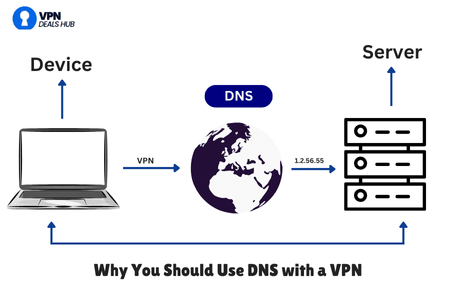
When you combine a VPN with a secure DNS setup, you create a double layer of protection:
- Prevent DNS Leaks: Ensures all your DNS requests go through the encrypted VPN tunnel.
- Avoid ISP Tracking: Keeps your browsing history private.
- Block Malicious Sites: Some VPNs offer custom DNS with malware and ad blocking.
How to Secure DNS with a VPN: Step-by-Step

- 9.8
- The fastest and most reliable VPN on the market

- 9.5
- Low-cost VPN offering unrestricted device usage

- 8.2
- Affordable new VPN launched by top industry professionals
1. Select a VPN that offers built-in DNS Leak Protection.
Look for VPN providers that offer built-in DNS leak protection and provide their own secure DNS servers.
2. Turn on DNS Leak Protection in your VPN’s settings.
Most VPN apps have an option to turn on DNS leak protection. Make sure this is activated.
3. Use a Trusted DNS Provider
If your VPN allows custom DNS settings, consider using privacy-focused DNS services like:
- Cloudflare DNS (1.1.1.1)
- Google Public DNS (8.8.8.8)
- OpenDNS (208.67.222.222)
These providers offer fast, secure DNS resolution and may provide additional features like malware blocking.
4. Manually Set DNS on Your Device
Manually set your DNS to your VPN’s servers or a trusted provider to ensure all traffic is securely routed.
5. Test for DNS Leaks
After setting up, use online tools like dnsleaktest.com to verify that your DNS requests are not leaking outside your VPN connection.
Additional Tips for Maximum Security
To further strengthen your online security and privacy, consider implementing these additional best practices:
- Always Keep Your VPN Software Updated: VPN providers frequently issue updates to fix security flaws and enhance performance keeping your app updated ensures you stay protected.
- Enable a VPN Kill Switch: This feature cuts off your internet access the moment your VPN connection unexpectedly drops. It prevents your real IP address and DNS requests from being exposed in case of VPN interruptions.
- Use Multi-Hop VPN Connections: Some VPNs offer multi-hop or double VPN connections that route your traffic through multiple servers in different countries, adding an extra layer of encryption and making tracking virtually impossible.
- Combine VPN with Antivirus Software: VPNs protect your internet traffic, but they don’t block viruses or malware. Use reputable antivirus software alongside your VPN for comprehensive protection against malicious files and websites.
- Enable Two-Factor Authentication (2FA): For all your online accounts, especially those connected to your VPN or email, enable 2FA to add an extra layer of security beyond your password.
- Avoid Free VPN Services: Free VPNs often come with limited security features, slower speeds, and questionable privacy policies. Investing in a reputable, paid VPN service ensures better protection and reliability.
- Regularly Review VPN Privacy Policies: Choose VPN providers with a strict no-logs policy and transparent privacy practices to ensure your data isn’t being stored or sold.
- Check for IPv6 Leak Protection: Ensure your VPN is configured to prevent IPv6 leaks, as some VPNs may not handle IPv6 traffic properly, potentially exposing your IP address.
- Be Cautious with Browser Extensions: Not all VPN browser extensions offer full protection. Use standalone VPN apps whenever possible and only install trusted, verified extensions.
By following these additional tips, you can maximize your security setup and significantly reduce the chances of data leaks, cyber-attacks, and privacy breaches.
Conclusion and Key Takeaways
Using DNS with a VPN is a smart, easy way to significantly boost your online security and privacy. By preventing DNS leaks and choosing secure DNS providers, you can enjoy safer browsing, better anonymity, and stronger protection against cyber threats.
When set up correctly, a VPN with proper DNS configuration can be one of the most powerful defenses against online tracking and attacks. Take control of your internet privacy today and make sure your DNS is working with your VPN, not against it.
Frequently Asked Questions (FAQ)
Can I use any DNS server with my VPN?
It’s best to use your VPN provider’s DNS servers or reputable privacy-focused DNS providers like Cloudflare (1.1.1.1) or Google Public DNS (8.8.8.8). Always verify that your VPN supports custom DNS settings before changing them.
What happens if I don't use DNS with my VPN?
If you don’t secure your DNS settings, you may experience DNS leaks, where your ISP or other third parties can still track your browsing activity despite using a VPN. This weakens your overall privacy and security.
How can I test if my DNS is leaking?
You can visit websites like dnsleaktest.com or ipleak.net to check whether your DNS requests are being routed correctly through your VPN. These tools help ensure your real IP address and DNS server are hidden.
Can I use a VPN and DNS configuration on my mobile device?
Yes, most VPN providers offer mobile apps that support secure DNS settings and DNS leak protection. You can also manually configure DNS settings on your mobile device for added security.
What is a VPN kill switch, and do I need it?
A VPN kill switch automatically cuts your internet connection if the VPN disconnects unexpectedly. It’s essential to prevent accidental exposure of your real IP address and DNS requests.

